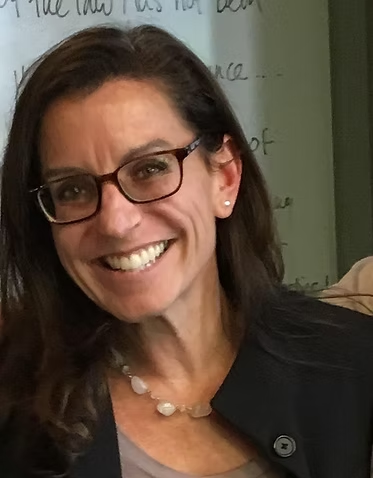Clark University’s Ombudsperson, Israela Brill-Cass, is an informal, confidential, neutral, and independent resource for staff and faculty who want to discuss any concern, issue, or conflict — without fear of retaliation or judgment.
What to expect in a visit
When you have a virtual visit with Israela, she will explain a bit about her role, then let you talk about your concerns.
About confidentiality
As a member of the International Ombudsman Association (IOA), Israela Brill-Cass subscribes to the IOA’s Code of Ethics and Standards of Practice, including confidentiality, independence, neutrality, and informality.
Confidentiality
The purpose of the ombud’s office is to create a safe space for faculty and staff to share their concerns, examine issues, and identify and consider potential options. All communications are confidential, which means that Clark’s ombud won’t share the name of anyone who visits — in person, via email, phone, or video conference — in or outside of the office. She also will not share what we discuss unless she receives explicit permission to do so. The only exception to this confidentiality is if I feel there is an imminent risk of serious harm, in which case I’ll notify an appropriate individual or office.
Independence
The ombudsperson is independent and outside of Clark’s administrative structure. The only “reporting” will be in the form of general check-ins with President David Fithian to see if the office is being used. Reporting will not include any identifying information about individuals or issues unless visitors specifically ask for their information to be shared.
Neutrality/Impartiality
The ombudsperson is an impartial third-party whose role is to offer objective assessments of any concerns raised and to provide information about what options are available to employees. She has no authority to take action or advocate on anyone’s behalf and cannot compel anyone or any department to respond.
Informality
An ombud is an informal resource for faculty and staff. She does not and cannot make or override decisions or formally advise any individual. The ombud does not maintain any permanent records of confidential communications and cannot participate in any formal adjudicative or administrative process regarding concerns brought to my attention. Her role is to listen and offer perspective and information only.
About Israela Brill-Cass
Israela has more than 20 years of experience as an attorney, mediator, facilitator, trainer, ombuds, and consultant. In 2015 she launched her company, Fixerrr LLC — the 3 r’s stand for rethink, respond and resolve — to help individuals, groups, and organizations recognize their strengths, assess their options, and gain the tools they need to succeed. In 2017 she became Wesleyan University’s inaugural ombudsperson.
Since 2003, Israela has taught negotiation (including culture and gender in salary negotiation), conflict communication, dispute resolution, mediation, and ombuds skills in both the public and private sectors for such clients as the Harvard T.H. Chan School of Public Health, Tufts Women in Medicine and Science, MassMutual, MIT, Arabella Advisors, the American Bar Association, and the Commonwealth of Massachusetts. A faculty member in the Communication Studies Department at Emerson College since 2012, she teaches courses in Conflict and Negotiation, Persuasion, Mediation, Advocacy, and Pre-Law.


